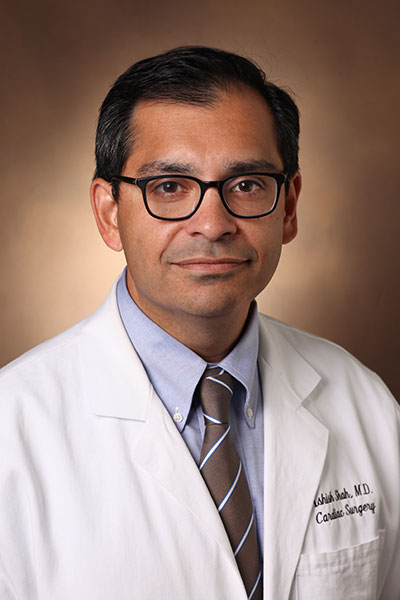This innovation saved his life
A heart transplant is always significant for the patient, but Jerry Parker’s was also a big milestone for Vanderbilt. Parker was one of the first Vanderbilt University Medical Center patients whose heart transplant involved a new process for preserving and transporting the donated heart so it could keep beating outside the body for an extended amount of time.
“I know I am alive today because of this system,” Parker said.
Parker and his wife, Cathy, drove to Nashville from Hixon, Tenn., the day before the transplant.
“After we got the call, we were both scared,” said Cathy. “I asked him if he wanted me to drive and he said, ‘No, I’m nervous enough already.’ ”
The couple said doctors told them about the Organ Care System (OCS) during a visit a month earlier, when Parker was placed on a continuous intravenous (IV) medication to help his heart function while waiting for transplant.
Heart Transplant
Being able to breathe more freely
He was not doing well at the time. Parker’s serious heart problems date to 2000, when he suffered a major heart attack, followed by quintuple bypass surgery in 2001. Doctors told him in 2013 that a transplant would be necessary to prolong his life.
“I’m really looking forward to just being able to get around and not having trouble breathing,” Parker said. “I just haven’t been able to do very much these past few years.”
Vanderbilt is one of nine centers across the United States, and the only one in the region, participating in the EXPAND Heart Pivotal Trial, using OCS, which is a device made by TransMedics.
“We see incredible possibilities” with this technology.
Before this technology, surgeons aimed to transplant a heart within four hours after it was removed from the donor’s body. OCS gives transplant surgeons and recipients more time to preserve and transport donated hearts. In turn, that makes more hearts viable for transplant.
More time to make decisions best for patients
“We see incredible possibilities” with this technology, said Ashish Shah, MD, chair of the Department of Cardiac Surgery at Vanderbilt. “We are providing a unique opportunity to help patients while also getting a new understanding of human heart physiology.”
Since launching the program, Vanderbilt has used the technology for at least three hearts. Two, including Parker’s, were transplanted, while a third organ did not meet the quality standards for surgery.
But Shah deemed all three perfusions as successful.
“All three of these organs would have been declined upon first appearance,” he said. “… We were able to adequately and thoroughly evaluate the hearts. We felt reassured that two of the hearts would work very well, while one was not appropriate. That is the value of this innovation. We had the time to test the organ and make decisions that were best for our patients.” Both patients are making great progress, Shah said.
Parker’s son, Eric, described his father’s new heart as “an incredible gift.
“I hope it allows him to have a better quality of life and do more with his granddaughters. … My dad was able to have a heart that probably would not have been available to him because of distance or time. We are just so thankful.”
Heart Transplant
Ashish S. ShahMD
- Aortic Center, Cardiac Surgery, Cardiac Tumors, Cardiac Valve Disease, Heart Assist Devices, Heart Valve Center, Hypertrophic Cardiomyopathy & Inherited Disease
